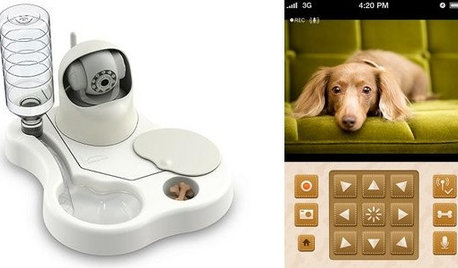Repeat Urinary Tract Infections
sdagibson
12 years ago
Related Stories

GARDENING GUIDESTree Care: Common Tree Diseases and What to Do About Them
Learn to recognize trees that may be affected by diseases or pests so you can quickly take action
Full Story
PETSSo You Want to Get a Cat
If you're a cat lover, the joys outweigh any other issue. If you haven't lived with one yet, here are a few things to know
Full Story
HOME TECHTo Feed and Protect: Care for Your Pet From Afar With New Devices
You might miss the nuzzles, but your dog or cat won't miss food, water or monitoring with these high-tech feeders and cameras
Full Story
MOST POPULARMeet a Lawn Alternative That Works Wonders
Carex can replace turfgrass in any spot, is low maintenance and adjusts easily. Add its good looks and you’ve got a ground cover winner
Full Story








laurief_gw
lzrddr
Related Professionals
Charleston Interior Designers & Decorators · Queens Interior Designers & Decorators · Austin Furniture & Accessories · Indianapolis Furniture & Accessories · Fair Lawn Furniture & Accessories · Fountainebleau Furniture & Accessories · Norwalk Furniture & Accessories · North Bellmore Furniture & Accessories · Bullhead City Cabinets & Cabinetry · North Bay Shore Cabinets & Cabinetry · Lutz Flooring Contractors · Marietta Flooring Contractors · Pompano Beach Flooring Contractors · The Crossings Flooring Contractors · Washougal Flooring ContractorssdagibsonOriginal Author
sdagibsonOriginal Author
lzrddr
joepyeweed
creekdweller
alan_s_thefirst